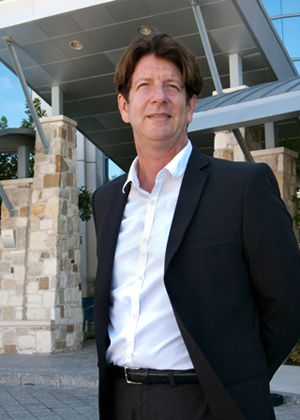Skyonic's twist on carbon capture turns CO2 into baking soda
 BP, ConocoPhillips and PVS Chemicals, along with several other investors, are throwing support and potentially up to $35 million into Skyonic, a Texas-based startup that intends to commercialize technology that can capture carbon emissions and turn it into baking soda.
BP, ConocoPhillips and PVS Chemicals, along with several other investors, are throwing support and potentially up to $35 million into Skyonic, a Texas-based startup that intends to commercialize technology that can capture carbon emissions and turn it into baking soda.Skyonic raised this week the first $9 million, funds that will be used to help pay for a $125 million commercial-scale carbon capture and mineralization project at Capitol Aggregates Inc.’s cement plant in San Antonio. Construction will begin this summer and is expected to be partially operational by 2014. Capitol Aggregates owner Zachry Corporation also is an investor in the project.
This is round of funding marks a critical step for a company that was borne out of a serendipitous night watching a Discovery Channel program about Mars.
“The program about Mars talked about carbon capture and I thought ‘That’s not the way to get rid of CO2,’” Skyonic CEO and President Joe Jones told me in a recent interview. The program ended. The nagging question about carbon capture did not.
Jones, a chemical engineer who worked for more than two decades in the semiconductor manufacturing industry, first took to Google and other basic research tools and found nothing related to his specific carbon capture idea. He eventually found the beginning of his answer in an old piece of research he had worked on in graduate school.
He built on his original idea, developed the technology, had it proven by an independent third party and in September 2004 filed patents, Jones said. Skyonic was founded the following year.
CO2 to baking soda
Skyonic developed its so-called Skymine technology, which can be retrofitted onto power plants or other industrial factories that emit large amounts of carbon dioxide emissions. The technology captures the CO2 from the exhaust stream and turns it into solids instead of a gas. It can then be processed into food-grade bicarbonate (baking soda) and hydrochloric acid, both of which can be sold to generate revenue and offset the carbon capture and conversion process.
The Skymine also cleans sulfur oxide and nitrogen dioxide emissions from the flue gas and removes heavy metals such as mercury.
Skyonic designed and built a pilot project at Capitol Aggregates that captures under 1,000 tons of CO2 emissions a year, Jones said. The $125 million project will build the technology out to a commercial scale capable of capturing 83,000 short tons of CO2 a year and converting 157,000 tons of bicarbonate.
It costs about $45 a ton to capture and convert the carbon emissions into bicarbonate, Jones said. Those costs should be greatly offset and even eliminated with the sale of the bicarbonate and other chemicals, he added. Once the commercial-scale project at Capitol Aggregates is complete, it will be able to produce $45 million in chemicals each year, Jones said.
The business model of the endeavor hinges on a couple of factors, including the bicarbonate market and the cost of capturing the carbon. What happens, for example, if hundreds of plants outfitted with Skymine start to produce bicarbonate and HCL?
The market can absorb any additional bicarbonate or HCL production, Jones said. “HCL is in great demand right now because of the oil and gas activity here,” he said. “And we’re making it at a 30 percent lower cost than the traditional method.” He added that Skyonic’s process can produce other chemicals as well such as bleach, chlorine and hydrogen.
As for the cost of the technology, Jones said continued research and development could help drive down the cost below $20 per ton.
You can return to the main Market News page, or press the Back button on your browser.

